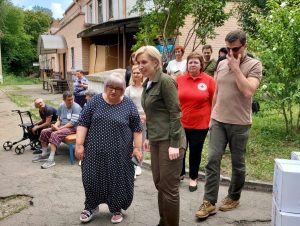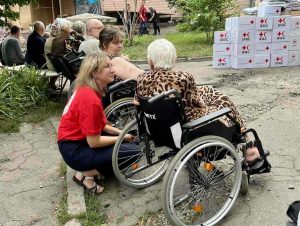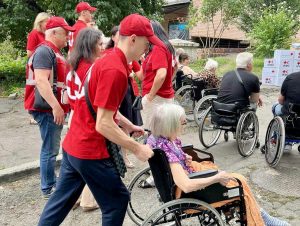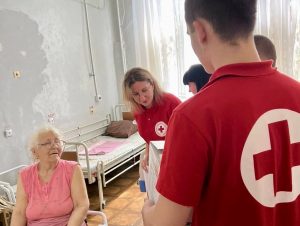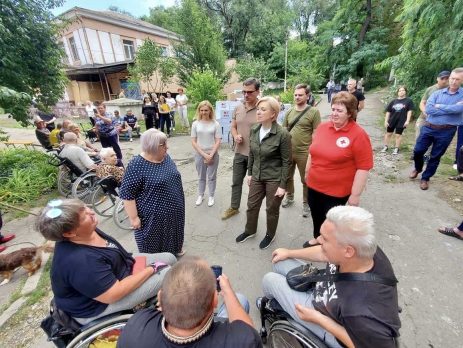On a working visit, Iryna Vereshchuk visited the Dnipropetrovsk region and talked with representatives of the Ukrainian Red Cross.
On a working visit, Iryna Vereshchuk, Deputy Prime Minister for Reintegration of the Temporarily Occupied Territories of Ukraine, visited the Dnipropetrovsk region and talked with representatives of the Ukrainian Red Cross.
Currently, about 300,000 internally displaced persons are registered in Dnipropetrovsk Oblast, of which more than 53,000 are pensioners, 13,000 are persons with disabilities and people with limited mobility, and 80,000 are children.
Deputy Prime Minister for Reintegration of the Temporarily Occupied Territories of Ukraine Iryna Vereshchuk paid a working visit to one of the IDP assistance centers. She met with families who left the “hot spots”, in particular with the most vulnerable sections of the population: families with many children, single people with reduced mobility, persons with disabilities.
“The humanitarian front is exactly what we, as a society, should do – unite, mobilize and help those who will have a very hard time going through this winter, help those who are the most vulnerable,” said Iryna Vereshchuk.
During the meeting, humanitarian aid was distributed by volunteers and employees of the Dnipropetrovsk regional organization of the Ukrainian Red Cross Society. Iryna Vereshchuk also talked with representatives of the Ukrainian Red Cross Society about humanitarian support for IDPs, including helping families prepare for the onset of the cold season.
Since the beginning of the war, more than 6 million Ukrainians have received help from the Ukrainian Red Cross Society, including 400,000 IDPs who received help from the Dnipropetrovsk regional organization of the Ukrainian Red Cross Society. This includes providing people with food kits, and organizing hot meals, providing hygiene products, drinking water, baby food, diapers, blankets, kitchen and sleeping sets, etc. In addition, volunteers regularly conduct activities for psychosocial support of the population to help them cope with stress, train people in first aid, participate in setting up shelters for IDPs, and transport people with limited mobility from evacuation trains.
Now there is a question of preparing people for the cold period: providing families with seasonal clothes, blankets, food, etc.
